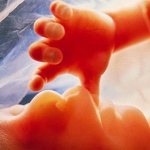Written by BT Walters
I recently took the time to read a master’s thesis written by a priest. It was about ‘structural sin,’ but it read more like something out of the Marxist Handbook. It is a small thesis paper of about 30,000 words which he wrote while studying at a Catholic University. It has an extensive bibliography. My overall impression after reading it was one of sadness. I did not get an opportunity to discuss his paper with him and he no longer responds to my emails.
My view is, being in the autumn of my years, that effort given to that sort of thing is a waste of time. There is so much that is beautiful, vital, and worthy of study in the Catholic Faith without resorting to political theology and claiming it to be part of the Catholic agenda. It is not. Fr Dennis Murphy msc once said that the greatest privilege of his life was to spend six years in Rome pondering the Scriptures. Life is too urgent to dream it away on some spurious utopia. Saint Faustina would probably agree that life is urgent.
In her Diary: Divine Mercy in My Soul, St. Faustina Kowalska (25/08/1905 – 05/10/1938) writes that she was led by an Angel to the chasms of hell, a place of great torture.
The sufferings she saw reveal a horrible place:
1. Loss of God.
2. Perpetual remorse of conscience.
3. One’s condition will never change.
4. Fire that will penetrate the soul without destroying it.
5. Continual darkness and suffocating smell although the devils and the souls of the damned see each other and each other’s evil.
6. Constant company of Satan.
7. Despair, hatred of God, vile words, curses, and blasphemies.
There are also special tortures reserved for individual souls. These are the torments of the senses. Each soul undergoes terrible and indescribable sufferings, related to the way it has sinned. The sinner will be tortured, throughout all eternity, in those senses by which he/she sinned.
I [Sister Faustina] am writing this at the command of God, so that no soul may find an excuse by saying there is no hell, or that nobody has ever been there, and so no one can say what it is like.
I, Sister Faustina, by the order of God, have visited the abyss of hell so that I might tell souls about it and testify to its existence. I cannot speak about it now; but I have received a command from God to leave it in writing. The devils were full of hatred for me, but they had to obey me at the command of God. What I have written is but a pale shadow of the things I saw. But I noticed one thing: that most of the souls there are those who disbelieved that there is a hell.
The revelation of hell given by Our Blessed Mother to the children of Fatima was substantially the same as that given to St. Faustina. Indeed, several great saints, including Catherine of Siena and Teresa of Avila, have been given visions of hell and they all see basically the same horrors. Jesus was not shy when it came to reminding people of the dreadful nature of hell.
What Jesus said about hell needs to be taken seriously as he uses scriptural images of the most violent and merciless kind: ‘weeping and grinding of teeth in the burning furnace’ Mt 13:42. ‘Gehenna, where the worm does not die and the fire is not quenched,’ Mk 9:43-48. ‘Where God can destroy the soul and the body,’ Mt 10:28. Jesus will send his angels to cast the workers of iniquity into the burning furnace, Mt 13:41ff, and He, Himself, will pronounce the curse: ‘Begone from me you cursed into eternal fire,’ Mt 25:41. It is Jesus Himself who declares: ‘I do not know you. ’Mt 25:12; cast him into the exterior darkness.’ Mt 25:30.
Hell is not a topic that arises very often in today’s discourse. I do not think it is mentioned in the religion classes of today’s kids. Many hold the view that we should not tell kids about hell as it might traumatize them. Apparently, Our Lady was unaware of this psychological prudence as she informed the three little children of Fatima of the existence of hell, indeed she even gave them a look at it. They obviously survived the experience as the two youngest Jacinta and Francesco have been canonized and Lucia, who died much later in 2005 at the age of 97, has had her cause progressed to the stage of “servant of God.”
There were roughly three parts to the Fatima visions. The first part was hell, the second part was wars, and the third part was the third secret. The third secret gets a lot of coverage while the section on hell seems to get very little. My view would be that hell is far more relevant to us than the third secret. In fact, it is probably more important to us than the consecration of Russia. The fact that this has not been done correctly in the view of some commentators, contrary to the request of Our Lady, may result in a few wars. Even having to live through a few wars does not compare to having to live in hell. Wars eventually come to an end whereas hell never comes to an end.
If it is correct to say that the opposite to hell is the Kingdom of God, then Saint Paul has some sobering comments at 1 Cor 6: 9-11. They are as follows:
Do you not know that the wicked will not inherit the kingdom of God? Do not be deceived: Neither the sexually immoral nor idolators nor adulterers nor male prostitutes nor homosexual offenders nor thieves nor the greedy nor drunkards nor slanderers nor swindlers will inherit the kingdom of God. And that is what some of you were. But you were washed, you were sanctified, you were justified in the name of the Lord Jesus Christ and by the Spirit of our God.
I wonder, if Paul were writing today, would he still mention homosexuals? Or would he leave them out and include terrorists and drug traffickers and those engaged in the child sex trade? He does not mention murderers or rapists so, clearly, the list is selective, not exhaustive.
When I first became aware of homosexual attitudes and ‘goings-on’ in religious life, in the late sixties, I experienced what is known as ‘cognitive dissonance.’ In other words, I could not get my mind around it. Many faithful Catholics experienced cognitive dissonance when confronted with the knowledge of priests sexually abusing children – my Irish grandmother being Exhibit A – she just refused to believe it, and angrily so. Perhaps it is the same with hell.
For us followers of Christ, who know the truth, the traditional descriptions of hell as outlined by St Faustina and the Fatima visionaries and the rest of those shown visions of it, are probably adequate; they could have been more horrific in their description, as St Faustina says, but we get the point.
The real point is that we are made for God. The whole purpose of our existence is to be with God. We were not created for greatness by the standards of the world ‘the greatest among you must be your servant.’ Of course, there are other priorities in our lives which take precedence beneath this one, all-encompassing purpose. God is the measure of all things and we are made for God. So, how would one describe being kicked out of the Kingdom of God? How would one describe being refused entry into heaven? How would one describe denying oneself the eternal happiness of heaven that is promised to us? It would be like being kicked off the cliff into the tortuous abyss of hell. As St Faustina tells us, the first suffering of hell is the loss of God.
You might notice that the saints and Our Lady are always “in our face” on the issue of hell. The majority of priests and bishops unfortunately not so much. You cannot be mister nice-guy and preach hell, people might laugh at you. If the thought of hell serves no other purpose than to remind us of why we were created, then that is a good thing. It helps us get things in perspective and to get our priorities right. We need hell at the back of our mind to constantly remind us of what is ahead of us. It can even be the source of encouragement for us to lift our game. Thank you, Sister Saint Faustina, thank you Mary Star of the Sea, and thank you, the rest of those chosen visionaries who force us to face the reality of our existence.
It is not difficult to avoid hell – it is certainly not impossible. Whenever we struggle with our spiritual life and health, remember that the whole purpose of the divine visitation of Sister Faustina was to promote the mercy of Jesus – the Divine Mercy. No act is too sacrilegious, no life is beyond redemption, no betrayal cannot be healed; we turn to the Divine Mercy who calms the storm in our souls, and there is peace.
Not only has Jesus opened the gates of hell and let us out, but he has opened the gates of heaven and guided us in. That is not such a momentous issue because that is the way it was meant to be from the beginning. Heaven is Gods’ plan for us, it is our destiny, it is our default position. It is comforting to know that Saint Faustina also visited Purgatory. She said that Mary visited and comforted the souls in Purgatory. They called her Star of the Sea. Saint Bernadine of Siena applies to Mary the text of Holy Scripture; “I have walked in the waves of the sea” (Eccl. 24:8) and he adds “ She descends into that sea of fire, quenching the flames for the suffering souls.”










